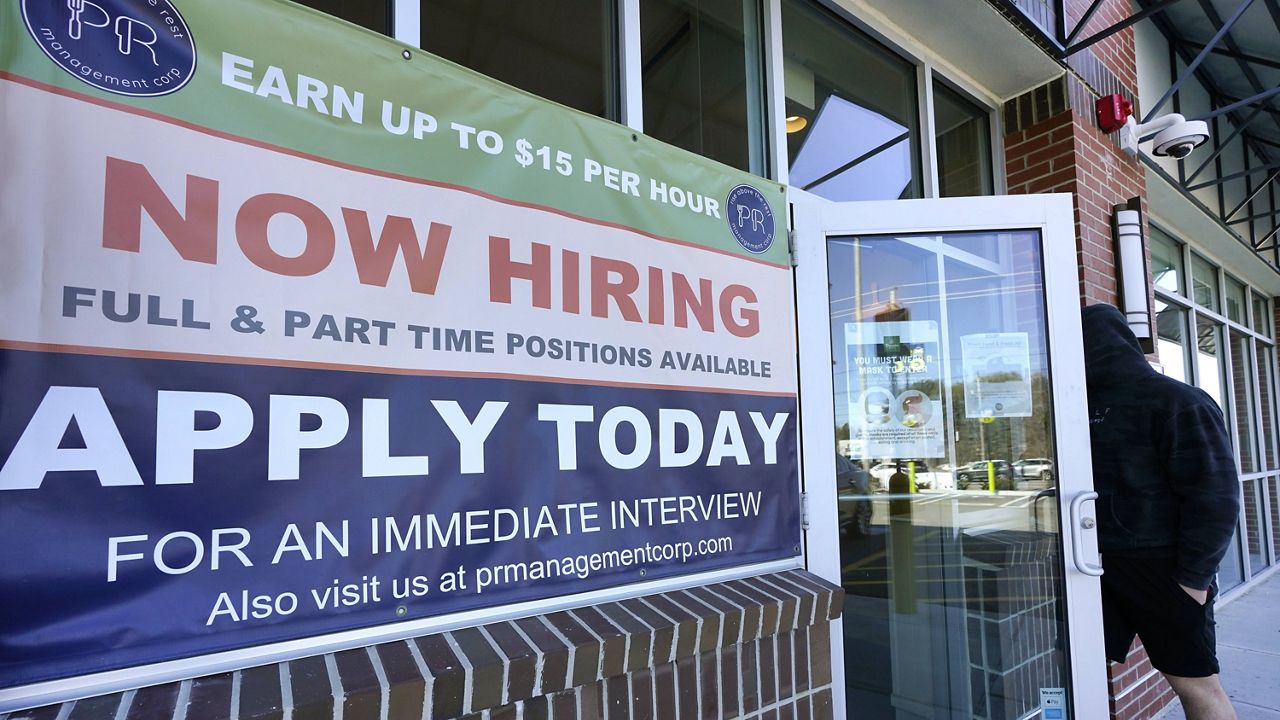America’s employers unleashed a burst of hiring in March, adding 916,000 jobs in a sign that a sustained recovery from the pandemic recession is taking hold as vaccinations accelerate, stimulus checks flow through the economy and businesses increasingly reopen.
What You Need To Know
- The U.S. added 916,000 jobs in March, a sign that a sustained recovery from the pandemic recession is taking hold
- The March increase — the most since August — was nearly double February’s gain of 468,000, the Labor Department said Friday
- The unemployment rate declined from 6.2% to 6%
- The economy remains more than 8 million jobs short of the number it had before the pandemic erupted a little over a year ago
The March increase — the most since August — was nearly double February’s gain of 468,000, the Labor Department said Friday. The unemployment rate declined from 6.2% to 6%.
Even with last month’s robust increase, the economy remains more than 8 million jobs short of the number it had before the pandemic erupted a little over a year ago. But with the recovery widely expected to strengthen, many forecasters predict enough hiring in the coming months to recover nearly all those lost jobs by year’s end.
Labor Secretary Marty Walsh told Spectrum News Friday that COVID-19 "has been very unpredictable," but jobs progress will continue if Americans continue getting vaccinated and following health and safety precautions.
"I think that the more vaccines we can get into people and still continue to wear masks and physically distance and take care of ourself, we will see encouraging signs moving forward," Secretary Walsh said. "If we don't do that, then I don't want to make an estimate of what could happen next month."
The increasingly bright outlook for the labor market follows a year of epic job losses, waves of coronavirus infections and small business closures. Numerous signs suggest that the economy is improving. Consumer confidence in March reached its highest level since the pandemic intensified.
A survey found that manufacturing grew in March at its fastest pace since 1983. And vaccinations are increasingly being administered, although new confirmed infections have risen from lower levels in recent weeks.
But what Walsh finds troubling, he said, are the race and gender gaps in the jobs market.
"The unemployment rate for black people in this report is still 9.6%, which is far too high," Walsh noted. We saw a little bit of closing gap between men and women in this latest report."
"We need to get make sure that every single woman that lost their job or left the workforce during this last year because of the pandemic," Walsh pledged. "We need to make sure that not only they come back into the workforce, but we need to get more people back into the workforce."
Walsh noted that President Joe Biden's proposed $2 trillion infrastructure bill, the American Jobs Plan, will play a key role in helping improve those figures.
Walsh is one of five Cabinet secretaries tapped to lead Biden's push on the infrastructure bill, along with Transportation Secretary Pete Buttigieg, Housing and Urban Development Secretary Marcia Fudge, Energy Secretary Jennifer Granholm, and Commerce Secretary Gina Raimondo.
The $1,400 checks in President Joe Biden’s $1.9 trillion economic relief plan have sharply increased consumer spending, according to Bank of America’s tracking of its debit and credit cards. Spending jumped 23% in the third week of March compared with pre-pandemic levels, the bank said.
Spending had begun to rise in March even before the stimulus checks arrived as viral case counts have tumbled from their heights in January. Americans are increasingly willing to venture out from home to travel and eat out, though not yet at their pre-pandemic pace. Roughly 1.5 million people traveled through airports on March 28, according to the Transportation Services Administration. That was roughly eight times the figure of a year ago, although it was still down sharply from 2.5 million on the same day in 2019.
The transportation analytics firm Inrix has calculated that daily car trips returned to pre-pandemic levels late last month. Many of those trips have likely been to restaurants, where the volume of seated diners was just 25% below pre-pandemic levels, on average, in the last week of March, according to OpenTable, a restaurant software provider. That’s up from 50% below pre-pandemic traffic just six weeks earlier.
The burgeoning economic activity is showing signs of translating into more jobs.
Karen Fichuk, CEO of Randstad North America, a recruiting firm, said the company is seeking to fill 38% more permanent jobs than it was at the end of last year. Demand for workers is particularly strong in manufacturing, information technology, logistics, and health care.
The Associated Press contributed to this report.



